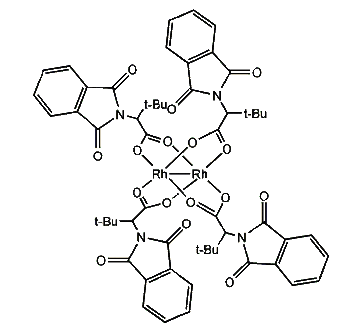Strem Chemicals, Inc., a manufacturer of specialty chemicals for research and development, is pleased to announce the addition of Rh2(S-PTTL)4 (Strem catalog 45-2105) to its portfolio of Dirhodium Catalysts.

Strem Chemicals, Inc. has licensed this technology from the University of Canberra. This is the University’s first commercialization agreement for a chemical product that will be sold globally.
The catalyst, discovered by associate professor of biomedical sciences Dr. Ashraf Ghanem, is used for asymmetric, intermolecular and intramolecular C-H insertion, cyclopropanation and other reactions. It may also be useful in pharmaceutical processing.
Dr. Ghanem explained that this synthetic catalyst produces a chemical reaction that allows certain molecules to be extracted with a very high level of purity, reducing the need for additional processing and diminishing the risk of unintended side effects.
“This is important because it can help produce more effective pharmaceuticals quickly, at a reduced cost and hopefully in the future that means people are paying less for the medication they need,” he said.
Dr. Ghanem said the path to commercializing his discovery has been hard work, but rewarding now that his research may be delivering a beneficial outcome to the pharmaceutical field, and in turn potentially aiding those depending on their medication.
“This commercialization deal shows that we are achieving great results in our field and that our work is offering a solution that can improve the pharmaceutical industry’s access to more pure drugs,” Dr. Ghanem said.
“I feel that this is what my research is meant to be doing, taking the theory from the bench to a product in the marketplace.”
“Strem is pleased to be adding this tool for drug discovery and process development scientists to use in their efforts to bring new pharmaceuticals to market and make them or generic drugs more efficiently”, said Dr. Ephraim S. Honig, Strem Chemical’s Chief Operating Officer.
University of Canberra Deputy Vice-Chancellor (Research), Professor Frances Shannon said she is proud of the work being done at the University.
“This intellectual property deal may be the first for a chemical product at the University of Canberra, but it won’t be the last,” Professor Shannon said.